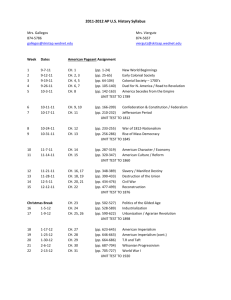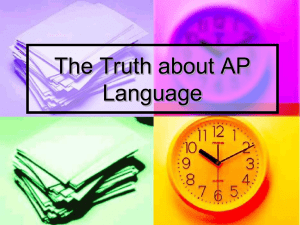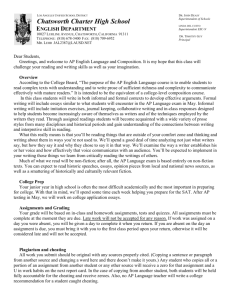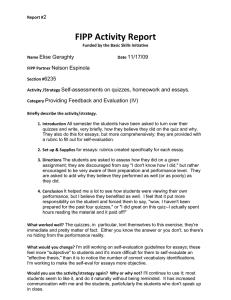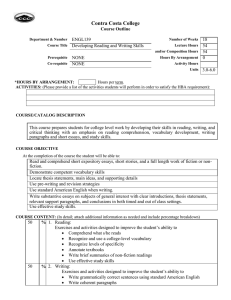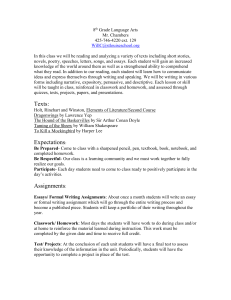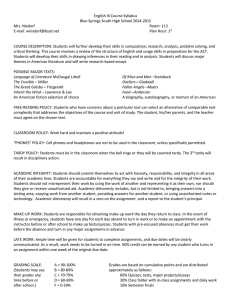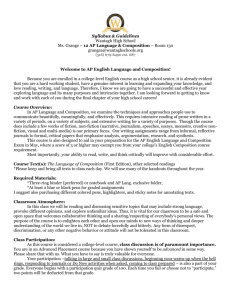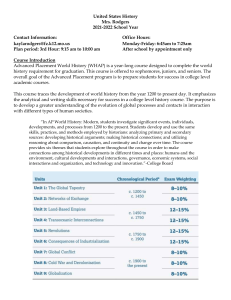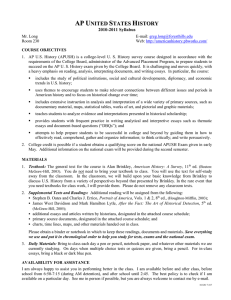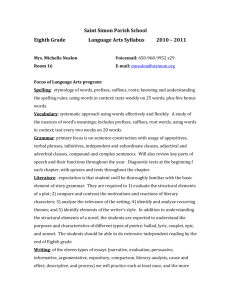English 10/ American Literature
advertisement
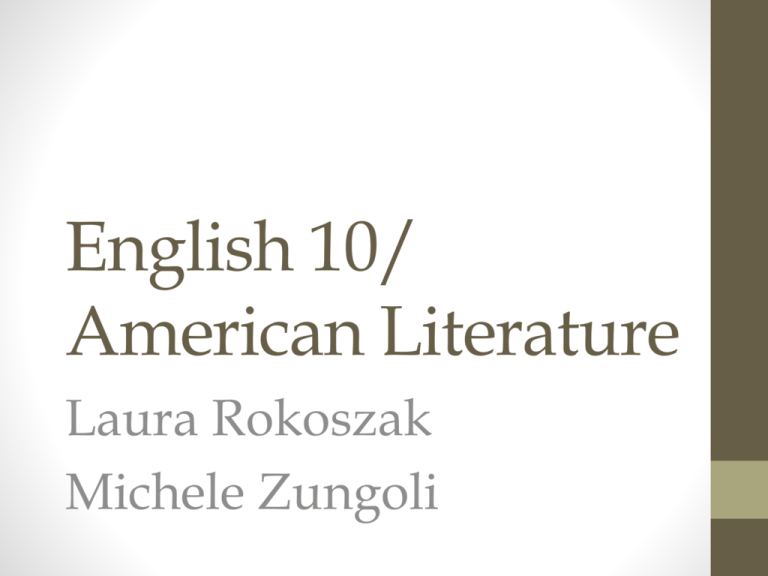
English 10/ American Literature Laura Rokoszak Michele Zungoli Focus of American Literature • Studying American writers who have distinct voices and stories to relate, the theme for American Literature this year is “find your voice, tell your story.” • Helping the students use exposure to other writers as a springboard for them to inmprove their own writing ability. • MAJOR THEMES of the American experience: • • • • Race & ethnicity; tolerance and acceptance Gender roles The role of the family The American Dream. • Ultimately, we will attempt to identify what it means to be an American. What does our literature tell us about our country, our culture, and ourselves? SEQUENCE AND SCOPE OF COURSE: • Throughout the year, we will be engaged in the following: • Reading – various short stories, novels, plays, articles, essays • Writing – both informal (journal) and formal (expository, persuasive, narrative essays); some creative projects • Vocabulary – varied strategies for word study, analyzing words from the current text we are reading or from materials the students bring in. Speaking – presentations; daily discussions • Critical Thinking – application; association; linking ideas, themes, texts, patterns Major works and units of study • Close Literary Analysis Short Stories by contemporary writers • Can Money Buy Happiness? The Great Gatsby, F. Scott Fitzgerald • The American Family – strength or weakness? • A Streetcar Named Desire –Tennessee Williams • Dramatic Lit – Choice (students will select another American play to read with a small group.) • The Last Night of Ballyhoo, Uhry • The Marriage of Bette and Boo, Durang • Steel Magnolias, Harling • Driving Miss Daisy, Uhry • The Help, Katherine Stockett, a modern novel • Non-fiction unit – studying, analyzing, discussing various non-fiction pieces of writing; looking for the appeals of ethos, pathos and logos. Writing your own non-fiction piece. COURSE REQUIREMENTS & EXPECTATIONS • 3-ring binder ; composition notebook • Please refer to Mrs. Rokoszak’s page on the NH Website in order to make daily as well as long range planning clear. • Students will be expected to participate regularly in class discussions and activities. Classroom activities will at times, include both individual and group activities or interpretive projects. • Good writing techniques are emphasized. Students are encouraged to get into the practice of revising their writing before handing in final drafts. In some instances, we will provide time in class to peer critique one another’s essays. • Students are expected to follow the general classroom rules of the school – • Absences - Students are expected to make every effort to be in class, especially on test and writing days. In the event of an unexpected absence or illness, students have one (1) day to make up assignments for each day absent. Longterm assignments are due on the due date regardless of absence (unless absence is of a prolonged nature). • Late Assignments & Make-up Work -Students should do their utmost to ensure that all work is handed in on the due date (punctuality is a good quality to have) Make-up tests/quizzes may be different in format from class tests/quizzes. GRADING PROCEDURE Major Assessments: Tests, Essays, Projects/Presentations (60%) Quizzes: Literary analysis, reading comprehension, vocabulary (20%) Journals or short written responses/classactivities; homework/class participation (20%) CONTACT INFORMATION Your encouragement is greatly appreciated. We hope to keep your children highly motivated and interested in our work throughout the year. If at any time you have questions or concerns, please do not hesitate to call us. Laura Rokoszak 327-8700 ext. 354 rokoszakl@northernhighlands.org Michele Zungoli 327-8700 ext. 387 zungolim@northernhighlands.org
